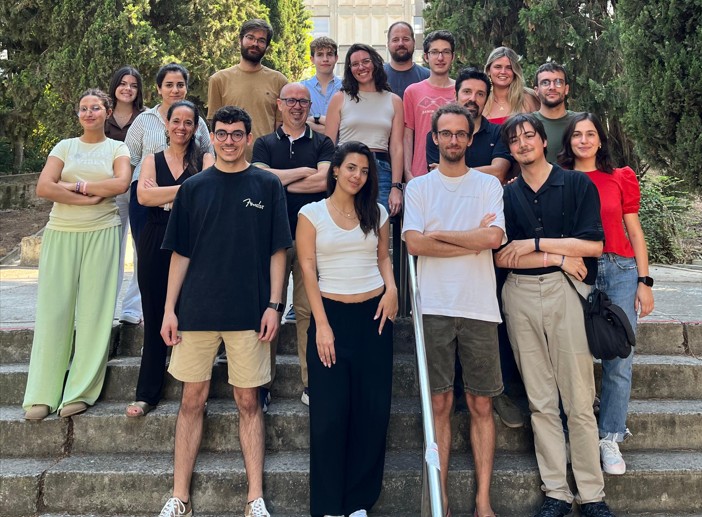An IBB project, recognized in the 2025 Call for Health Research of the "la Caixa" Foundation
The researcher Salvador Ventura will lead the IBB research project that has obtained funding in the VIII Call for Health Research of the ”la Caixa” Foundation. The project proposes an innovative approach that could improve the treatment of Parkinson's disease.

The 2025 Call for Health Research of the ”la Caixa” Foundation has selected 34 cutting-edge biomedical research projects, from among the 714 proposals submitted, which will be led by 25 Spanish research centers, universities and hospitals, and 9 Portuguese ones. The total amount of the program's grants is 26 million euros.
Two projects have been awarded to the UAB, one led by Albert Quintana, researcher at the Institute of Neurosciences (INc-UAB) and associate professor at the Department of Cell Biology, Physiology and Immunology, and another led by Salvador Ventura, researcher at the Institute of Biotechnology and Biomedicine (IBB-UAB), contracted professor at the Department of Biochemistry and Molecular Biology and director of the Parc Taulí Research and Innovation Institute (I3PT).
An innovative vaccine to treat Parkinson's disease
Salvador Ventura will carry out, in consortium with Analía Bortolozzi, a researcher at the Spanish National Council for Scientific Research (CSIC), the project “A Next-Generation Vaccine for Parkinson’s Disease”.
Current treatments only allow the initial symptoms of Parkinson’s disease to be controlled, but they do not stop the progress of this brain disorder, which seriously affects movement and quality of life. Ventura and his team’s project focuses on the development of a new vaccine, NEUROVAX, targeting a specific region of a protein that aggregates and damages the brain cells of people affected by the disease. By blocking this region, the vaccine aims to prevent damage to brain cells and improve motor and cognitive functions.
The proposed vaccine, based on nanotechnology methods, trains the immune system to produce antibodies specifically targeting harmful protein aggregates. This innovative strategy has already shown promising preliminary results in animal models. The researchers now want to validate its efficacy in preclinical trials, with the hope of later conducting trials in humans.
The project is expected to achieve a significant reduction in harmful protein aggregates and an improvement in motor and cognitive functions, which would significantly improve the lives of patients and their families, and in the long term it is also hoped to find a possible preventive treatment for the disease.
To carry out the project, the researchers received a grant of €628,288.
News adapted from the publication made on the UAB website on November 20, 2025.
